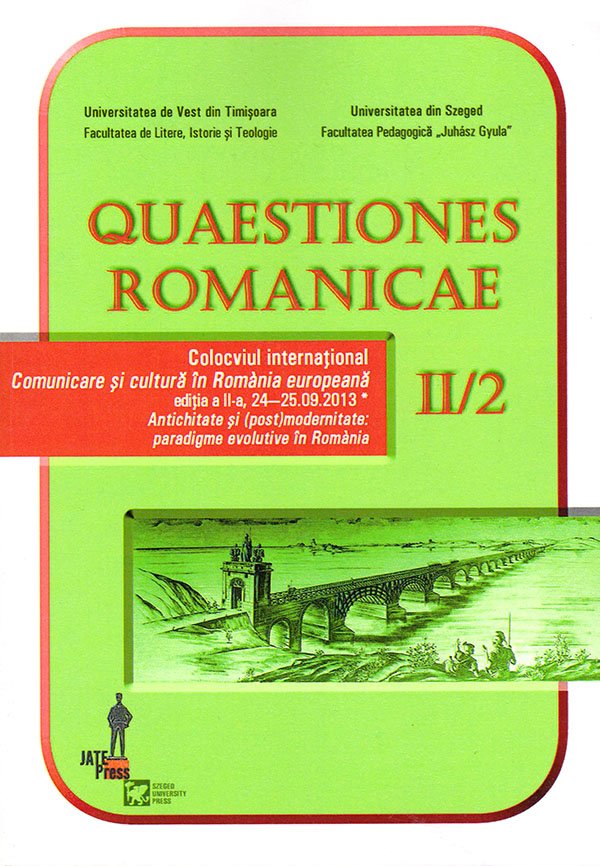Tradición versus innovación en la sociedad y en la gramática. Cuestiones de la expresión de los géneros en las lenguas romances de la Península Ibérica
Abstract: (Tradition versus innovation in society and grammar. Issues about the expression of genders in the Romance languages of the Iberian Peninsula) Since language is a social phenomenon, the “evolutionary paradigms” of the linguistic system are often determined by the changes that take place within the society; therefore, essentially, it is quite possible to assume that there is some kind of relation between them. Nevertheless, the aim of this paper is to prove that this relation between the social change and the linguistic change is not as direct as it seems and that its nature is more complex than it is generally believed, because the mechanisms of the grammatical innovation are basically determined by the interior of the linguistic system. We will examine the emancipation of women, a result of a social change, and the split of common nouns with respect to their gender, a grammatical change concerning the expression of genders. Primary data come from the Spanish language, but, when it is possible, we also refer to Portuguese and Catalan examples, as they are closely related to it: the first one in a typological way, the latter one due to their coexistence within the same social, administrative and cultural contexts.
Keywords: social change, grammatical change, grammatical gender, split of common nouns with respect to their gender, generic motion.
Riassunto: Siendo la lengua un fenómeno social, los “paradigmas evolutivos” del sistema lingüístico muchas veces son determinados por los cambios que se producen en la sociedad, por lo cual, en principio, no es nada extraño suponer que hay relación entre ellos. En este trabajo, sin embargo, se intenta demostrar que la relación entre el cambio social y el cambio lingüístico no es tan directa como se imagina y que su naturaleza es bastante más compleja que de la que se supone habitualmente, puesto que el mecanismo de la innovación gramatical está básicamente determinado por el interior del sistema lingüístico. Se analiza el caso de la emancipación de la mujer, producto de un cambio social, y el desdoblamiento de nombres comunes en cuanto al género, cambio gramatical producido en la expresión de géneros. Los datos de partida proceden del español, pero cuando sea posible, nos referiremos también al portugués y al catalán, que están estrechamente vinculados con él: el primero tipológicamente, el segundo por coexistir con él entre los mismos marcos sociales, administrativos y culturales.
Palabras clave: cambio social, cambio gramatical, género gramatical, desdoblamiento de nombres comunes en cuanto al género, moción genérica.
